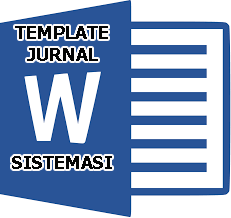Systematic Review of Decentralized and Collaborative Computing Models in Cloud Architectures for Distributed Edge Computing
Abstract
Full Text:
PDFReferences
Z. S. Ageed, S. R. M. Zeebaree, M. A. M. Sadeeq, R. K. Ibrahim, H. M. Shukur, and A. Alkhayyat, “Comprehensive study of moving from grid and cloud computing through fog and edge computing towards dew computing,” in 2021 4th International Iraqi Conference on Engineering Technology and Their Applications (IICETA), IEEE, 2021, pp. 68–74.
P. J. Escamilla-Ambrosio, A. Rodríguez-Mota, E. Aguirre-Anaya, R. Acosta-Bermejo, and M. Salinas-Rosales, “Distributing computing in the internet of things: cloud, fog and edge computing overview,” in NEO 2016: Results of the Numerical and Evolutionary Optimization Workshop NEO 2016 and the NEO Cities 2016 Workshop held on September 20-24, 2016 in Tlalnepantla, Mexico, Springer, 2018, pp. 87–115.
M. Talebkhah, A. Sali, M. Marjani, M. Gordan, S. J. Hashim, and F. Z. Rokhani, “Edge computing: architecture, applications and future perspectives,” in 2020 IEEE 2nd International Conference on Artificial Intelligence in Engineering and Technology (IICAIET), IEEE, 2020, pp. 1–6.
A. J. Ferrer, J. M. Marquès, and J. Jorba, “Towards the decentralised cloud: Survey on approaches and challenges for mobile, ad hoc, and edge computing,” ACM Computing Surveys (CSUR), vol. 51, no. 6, pp. 1–36, 2019.
C. Cicconetti, M. Conti, and A. Passarella, “A decentralized framework for serverless edge computing in the internet of things,” IEEE Transactions on Network and Service Management, vol. 18, no. 2, pp. 2166–2180, 2020.
M. Bukhsh, S. Abdullah, and I. S. Bajwa, “A decentralized edge computing latency-aware task management method with high availability for IoT applications,” IEEE Access, vol. 9, pp. 138994–139008, 2021.
S. Chen, Q. Li, M. Zhou, and A. Abusorrah, “Recent advances in collaborative scheduling of computing tasks in an edge computing paradigm,” Sensors, vol. 21, no. 3, p. 779, 2021.
G. Baranwal, D. Kumar, and D. P. Vidyarthi, “Blockchain based resource allocation in cloud and distributed edge computing: A survey,” Comput Commun, 2023.
H. Yang, Y. Liang, J. Yuan, Q. Yao, A. Yu, and J. Zhang, “Distributed blockchain-based trusted multidomain collaboration for mobile edge computing in 5G and beyond,” IEEE Trans Industr Inform, vol. 16, no. 11, pp. 7094–7104, 2020.
G. Bao and P. Guo, “Federated learning in cloud-edge collaborative architecture: key technologies, applications and challenges,” Journal of Cloud Computing, vol. 11, no. 1, p. 94, 2022.
Y. Qi, X. Wang, H. Li, and J. Tian, “Leveraging Federated Learning and Edge Computing for Recommendation Systems within Cloud Computing Networks,” arXiv preprint arXiv:2403.03165, 2024.
S. Duan et al., “Distributed artificial intelligence empowered by end-edge-cloud computing: A survey,” IEEE Communications Surveys & Tutorials, vol. 25, no. 1, pp. 591–624, 2022.
Y. Sun, H. Ochiai, and H. Esaki, “Decentralized deep learning for multi-access edge computing: A survey on communication efficiency and trustworthiness,” IEEE Transactions on Artificial Intelligence, vol. 3, no. 6, pp. 963–972, 2021.
H. Yuan and M. Zhou, “Profit-maximized collaborative computation offloading and resource allocation in distributed cloud and edge computing systems,” IEEE Transactions on Automation Science and Engineering, vol. 18, no. 3, pp. 1277–1287, 2020.
F. Dressler et al., “V-Edge: Virtual edge computing as an enabler for novel microservices and cooperative computing,” IEEE Netw, vol. 36, no. 3, pp. 24–31, 2022.
L. Yuan et al., “CSEdge: Enabling collaborative edge storage for multi-access edge computing based on blockchain,” IEEE Transactions on Parallel and Distributed Systems, vol. 33, no. 8, pp. 1873–1887, 2021.
X. Li, X. Huang, C. Li, R. Yu, and L. Shu, “EdgeCare: Leveraging edge computing for collaborative data management in mobile healthcare systems,” IEEE Access, vol. 7, pp. 22011–22025, 2019.
H. Wu, Z. Zhang, C. Guan, K. Wolter, and M. Xu, “Collaborate edge and cloud computing with distributed deep learning for smart city internet of things,” IEEE Internet Things J, vol. 7, no. 9, pp. 8099–8110, 2020.
Y. Huang, X. Qiao, S. Dustdar, J. Zhang, and J. Li, “Toward decentralized and collaborative deep learning inference for intelligent iot devices,” IEEE Netw, vol. 36, no. 1, pp. 59–68, 2022.
Z. Nezami, K. Zamanifar, K. Djemame, and E. Pournaras, “Decentralized edge-to-cloud load balancing: Service placement for the Internet of Things,” IEEE Access, vol. 9, pp. 64983–65000, 2021.
Q. Peng et al., “A decentralized collaborative approach to online edge user allocation in edge computing environments,” in 2020 IEEE International Conference on Web Services (ICWS), IEEE, 2020, pp. 294–301.
R. Sharma, C. A. Chan, and C. Leckie, “Evaluation of centralised vs distributed collaborative intrusion detection systems in multi-access edge computing,” in 2020 IFIP Networking Conference (Networking), IEEE, 2020, pp. 343–351.
L. Wang, Y. Xu, H. Xu, M. Chen, and L. Huang, “Accelerating decentralized federated learning in heterogeneous edge computing,” IEEE Trans Mob Comput, 2022.
Y. Wang, C. Yang, S. Lan, L. Zhu, and Y. Zhang, “End-Edge-Cloud Collaborative Computing for Deep Learning: A Comprehensive Survey,” IEEE Communications Surveys & Tutorials, 2024.
L. Yuan et al., “Coopedge: A decentralized blockchain-based platform for cooperative edge computing,” in Proceedings of the Web Conference 2021, 2021, pp. 2245–2257.
H. M. Zangana and S. R. M. Zeebaree, “Distributed Systems for Artificial Intelligence in Cloud Computing: A Review of AI-Powered Applications and Services,” International Journal of Informatics, Information System and Computer Engineering (INJIISCOM), vol. 5, no. 1, pp. 11–30, 2024.
DOI: https://doi.org/10.32520/stmsi.v13i4.4169
Article Metrics
Abstract view : 1222 timesPDF - 224 times
Refbacks
- There are currently no refbacks.

This work is licensed under a Creative Commons Attribution-ShareAlike 4.0 International License.









